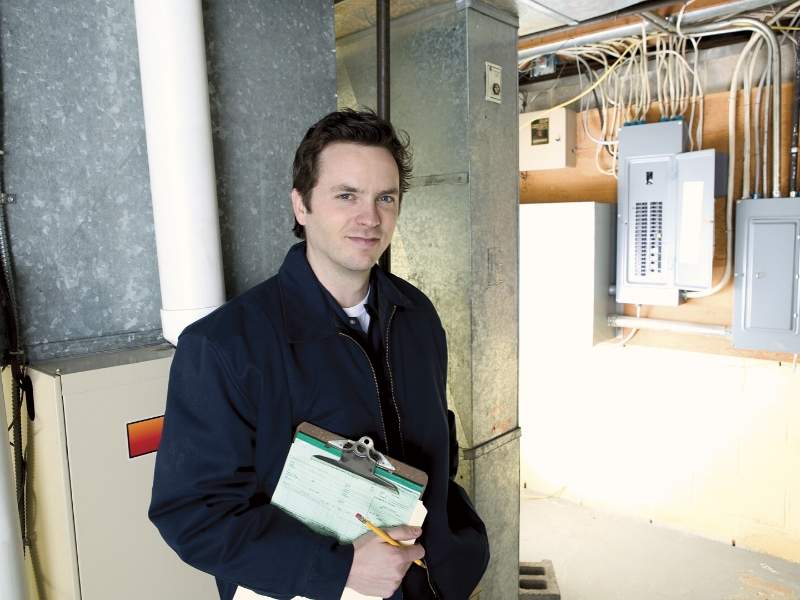Money pits are houses that need so many repairs that they become a new homeowner’s worst nightmare. We’d like to help you avoid this dreaded scenario. When you undertake the process of buying a new home, naturally you have tons of questions. Some questions might be about the neighborhood or the distance from the nearest school, or if the house is the right size for your family. These are good questions to ask before you buy.
However, the most important thing to consider is if the house is one of those potential money pits. Especially when you consider the purchase of a fixer-upper, you want to be cautious to avoid exorbitant maintenance and repair issues. No matter how skillful you are with home repairs, there may be some repair projects that are expensive and a lot more work than you expect.
How to Avoid the Dreaded Money Pits

Check the Property Maintenance Records
Ask your realtor for the maintenance records for the property. If the records show a history of significant maintenance and repair work, it usually means one of two things.
- The property is well maintained and in theory, you have a house that passes all inspections. Of course, you always want to order your own inspection, in any case.
- However, if the same repairs show up time and time again in the records, consider this a red flag. When problems continue to reoccur, there might be a serious problem. These are the issues to isolate before you purchase because it’s possible they’ll continue to cause you problems long after you move into the property.
Bring in the Professionals

There are things you need to know when you walk around the property yourself. However, it’s important to bring in professional building inspectors to give you their expert opinion. Therefore, your first task is to order a home inspection for a full assessment of the property. This will determine if the house meets your expectations and if you want to move forward with the purchase.
Don’t confuse the inspection with an appraisal. Appraisals are required by your mortgage lender and are to determine the value of the property. Conversely, home inspectors provide thorough details about the structure and condition of your potential property.
Consequently, it’s fine for your realtor to order the property appraisal from someone they might have on their team. However, it’s better to order your home inspection separately from an independent professional. This avoids possible conflict of interest on the part of your realtor and ensures that you get the most thorough inspection for your money.
What You Need to Know

When you do a tour of a property, whether it is a fixer-upper or a new home, be on high alert for potential issues. Don’t run the risk of a bad purchase. Instead, read the home inspection report carefully to weigh out all considerations. Here are some of the red flags to look for to avoid the trap of a home that becomes one of those miserable money pits.
• Electrical Fires
If you smell the odor of burns, it may be because the heating hasn’t been turned on in a while. However, your nose may be alerted to something dangerous, such as the risk of electrical fire because of frayed electrical wiring or an overload on circuits. These repairs usually require the skills of an electrical contractor.
• Mold
You may also smell or see signs of mold on the property. Spores usually grow where there’s leakage, so you need the services of a plumber skilled in locating hidden leaks using local leak detection services to get to the source of those problems. One or two rooms with mold are bad enough, but if there are signs of it across the property, you’ll also need to hire a mold remediation service.
• Drafts
If you feel drafts coming through doors and windows, you might have inadequate insulation, which must be replaced. However, if you buy an older property, the structures settle over time, so the doors and windows become stuck or inoperable, which means you’ll pay to replace them either now or in the near future.
• Water Flow Blockages
Check the water flow in the property and if the water is off, have it turned back on for inspection. Check the color when turning on bathroom and kitchen taps, and consider the water pressure. There may be blockages in some of the pipes or you might need a new septic tank. The water from the pipes may be a slow trickle, but the same won’t apply to the money coming out of your wallet!
• Damp Floors
Inspect the floors of the bathroom. In an older property, especially one with a wooden floor, you may find the toilet is unstable to sit on. This is because the wood beneath the toilet most likely has damage due to water leakage. You can replace the floor yourself, but be certain you have the knowledge and skills to complete the project.
• Settled Structures
The structure of the property should be level and solid. However, if you notice uneven flooring, doors that don’t swing or fit properly, or see large cracks in the interior and exterior walls, these are signs of damage. This may merely be a sign of the property’s age, and some renovation may be in order. However, there may also be issues with the land on which the property is positioned.
• Roof Damage
Be certain to inspect the roof. The odd missing tile may account for any stains or mold you spotted inside the home, but these shouldn’t be too expensive to replace. On the other hand, if the entire roof needs replacing, this is a major expense so, definitely, one to consider before you purchase the house.
These are the types of issues that should be included in your professional home inspection report. While you may be able to deal with some of these maintenance jobs yourself, there are other jobs that are best left to the professionals. The last thing you want is a long series of repair bills that are avoidable with the right knowledge. So, continue to do your research before you purchase to be confident that you purchase the best property for your time and budget.
We wish you the very best of success in your search for a new home and we hope that these guidelines help you get the best home with the least amount of future repairs.
Images Courtesy of Canva.
Other Posts You Might Enjoy:
How to Select the Right Wood Cutting Tools
3 Things You Don’t Need to do for “We Buy Any Home Cash Buyers”





